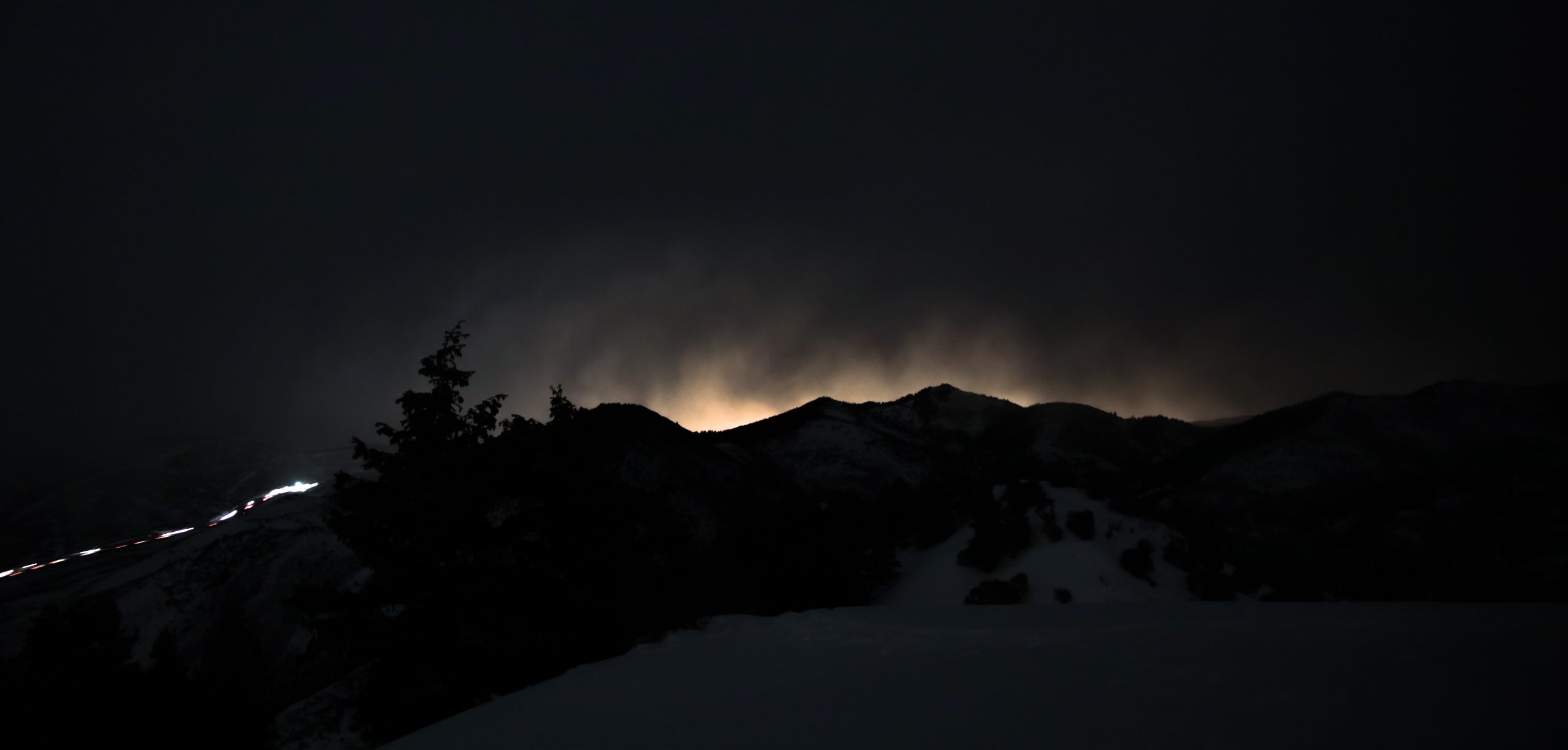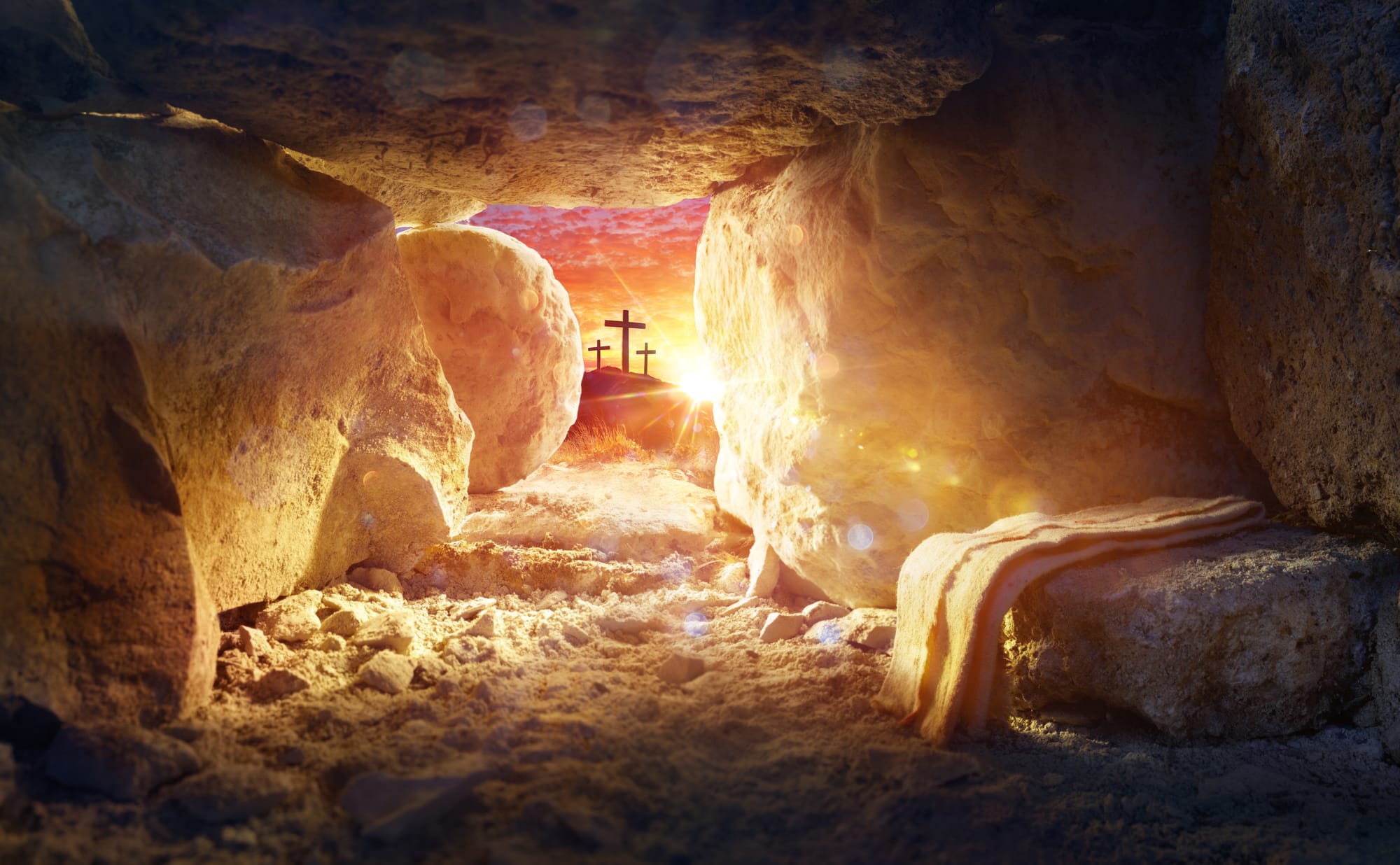
"What if the resurrection of Jesus is experienced in our lives not as a blaze of glory but a candle flame in the dark? This Easter, may we feel the words Jesus is risen” whispered into the darkness of our hearts and of the communities we belong in," writes Ronald Wong of Yio Chu Kang Chapel. Photo by Patrick Hendry on Unsplash.
It has always struck me as remarkable that when the writers of the four Gospels come to the most important part of the story they have to tell, they tell it in whispers: The part about the resurrection.
According to the Gospels there was no choir of angels to proclaim it. There was no sudden explosion of light in the sky. Not a single soul was around to see it happen.
The resurrection was like a candle flame in the dark, flickering first in this place, then in that place, then in no place at all.
When Mary Magdalene arrived at the tomb afterward, she thought at first that it must be a gardener standing there in the shadows, and when she saw who it really was and tried to embrace him, he told her not to, as if for fear that once she had him in her arms she would never let him go.
When the disciples heard He was alive again, they tended to dismiss it as too good to be true, and even when they finally saw Him for themselves, Thomas still wasn’t convinced until Jesus let him touch His wounds with his own hands.
Later on, when they were out fishing at daybreak, they saw Him standing on the beach, and there again they failed to recognise Him until he asked them to come join Him at the charcoal fire he had started on the sand and cooked them breakfast.
The way the Gospel writers tell it, in other words, Jesus came back from death, not in a blaze of glory, but more like a candle flame in the dark, flickering first in this place, then in that place, then in no place at all.
Softly, preciously
If they had been making the whole thing up for the purpose of converting the world, presumably they would have described it more the way the book of Revelation describes how He will come back again at the end of time with “the armies of heaven arrayed in fine linen, white and pure” and His eyes “like a flame of fire, and on his head many diadems” (19:14, 12).
But that is not the way the Gospels tell it.
To proclaim the resurrection the way the Gospels do, you would have to say it in whispers.
They are not trying to describe it as convincingly as they can. They are trying to describe it as truthfully as they can.
It was the most extraordinary thing they believed had ever happened, and yet they tell it so quietly that you have to lean close to be sure of what they are telling.
They tell it as softly as a secret, as something so precious, and holy, and fragile, and unbelievable, and true, that to tell it any other way would be somehow to dishonour it.
To proclaim the resurrection the way they do, you would have to say it in whispers: “Christ has risen.” Like that.
The shadowy side
Down through the centuries, when churches all over the world proclaim that He has been raised indeed and our faith gloriously vindicated, they naturally do so at the top of their lungs and with all flags flying.
Through the centuries, when churches proclaim Jesus is risen, they do so at the top of their lungs and with all flags flying.
A resounding sermon.
Fancy clothes.
Packed pews.
It can be a very powerful and beautiful occasion proclaiming that, even in a mad and murderous world like ours, which no longer believes in much of anything, there are still people who believe that this miracle of all miracles actually took place, or who at least long to believe it.
But the shadow side of the great Easter celebration is that sometimes the very fanfare and fortissimo of it are apt to leave us feeling like the only guests at a great New Year’s Eve party who are not having the time of our lives.
All the wonderful things that are going on around us on Easter Sunday can sometimes make us more conscious than usual that nothing even close to all that wonderful is going on inside ourselves.” (Excerpt from a sermon The Secret in the Dark by Frederick Buechner.)
The big “what if”
For many Christians, this Easter we will not celebrate the resurrection of Jesus in a packed church building with celebratory pomp and music.
Yet, what if the power of the risen Jesus is experienced – not in a giant choir singing at the top of their lungs – but in the quiet breath we sip?
In times like these, when there are people drowning in air due to Covid-19, some struggling to breathe through a respirator, I experience the power of Jesus in the breath I am privileged to take.
What if the power of the risen Jesus is experienced – not in a giant choir singing at the top of their lungs – but in the quiet breath we sip?
What if we see the face of Jesus not in blinding visions but in the tired brother or sister sitting beside us or on the other side of our screens?
What if we see the face of Jesus in the estate cleaner who had to disinfect doors and lifts all day?
What if the hand of God is felt not in obtaining our greatest aspirations but in sharing the pierced wounds of Jesus?
What if the hand of God is felt in the physical isolation we are forced to have from others? Or even in the sickness or burdens we must carry?
What if the heart-burning presence of Jesus is experienced not in a well orchestrated worship service but in the humble breakfast we share with another person? Not in gathering in church buildings or services, but in being served by Jesus the bread of life in the Spirit?
What if Jesus is standing behind us in the shadows of the cemetery of our wishes and delights? In the shadows of cancelled weddings or holidays or plans?
What if the resurrection of Jesus is experienced in our lives not as a blaze of glory but a candle flame in the dark?
What if we looked not at the gaping skies or the well-lit church stage, but in our tiny prayer closet at home where suddenly, His Word is spoken straight to our heart as a whisper in the dark?
Do we believe Jesus is alive today? Where do we look to find Him?
Quiet confidence
These are troubled times. Virus, sickness, death, panic, fear, lockdown, isolation, economic recession, etc. My wife asked me recently: “Will we (our family) be okay?”
I didn’t want to lie to say everything will be fine. No, there’s no guarantee that any of us will be fine – that is, alive, healthy, and unaffected financially.
There’s no guarantee that we will be fine. But we trust that God works all things for good because Jesus is risen.
But God works all things for good, and we can trust this because Jesus is risen. We don’t shout this aloud as though we are standing tall at the mountain peak. Probably none of us at this time can profess to be.
No, we say this with quiet confidence in the darkness of the valley:
“And we know that for those who love God all things work together for good, for those who are called according to his purpose. … Christ Jesus is the one who died-more than that, who was raised-who is at the right hand of God, who indeed is interceding for us. Who shall separate us from the love of Christ? Shall tribulation, or distress, or persecution, or famine, or nakedness, or danger, or sword?” (Romans 8:28, 34-35).
You can add “or Covid or economic recession or physical distancing”. It is just the same.
Just because
Then, I thought of the song Because He Lives. I was reminded of it because the verse has a line about having a newborn baby. Some people think it’s weird. But the story behind it gives that line a lot of meaning.
“Because He lives, I can face tomorrow.”
The Gaithers wrote the song in the 1960s in the United States, a chaotic era of the Vietnam War, racial tensions, and seismic shifts in societal values. It was an especially harsh winter. And Bill Gaither was stricken with a severe case of mononucleosis.
Gloria Gaither and other church members faced false accusations from others. Then, they found out they were having a baby. They wondered whether it was unwise to bring a baby into such a troubled world.
One sunny day in the early spring, Bill, Gloria and Bill’s father George walked across the paved parking lot at their small A-frame offices. George called Bill and Gloria’s attention to a spot they had not noticed. He pointed out a tiny blade of grass that had pushed aside layers of dirt, rock and concrete to reach the sunshine of the world above. It had such a strong will to live; it had overcome all the odds to fulfil its destiny.
That blade of grass became a symbol to the Gaithers of how God works in His creation. And it inspired Gloria to write a song expressing the hope that was shaped by the resurrection of Jesus, as well as that blade of grass and the birth of her son:
“God sent His Son, they called Him Jesus;
He came to love, heal and forgive.
He lived and died to buy my pardon;
An empty grave is there to prove my Saviour lives.
How sweet to hold a newborn baby;
and feel the pride and joy he gives;
but greater still, the calm assurance:
This child can face uncertain days because He lives.
Because He lives, I can face tomorrow.
Because He lives, all fear is gone.
Because I know He holds the future,
And life is worth the living just because He lives!”
This Easter, may we feel the words “Jesus is risen” whispered into the darkness of our hearts and of the communities we belong in.
This was first published by Yio Chu Kang Chapel and has been republished with permission.
We are an independent, non-profit organisation that relies on the generosity of our readers, such as yourself, to continue serving the kingdom. Every dollar donated goes directly back into our editorial coverage.
Would you consider partnering with us in our kingdom work by supporting us financially, either as a one-off donation, or a recurring pledge?
Support Salt&Light


